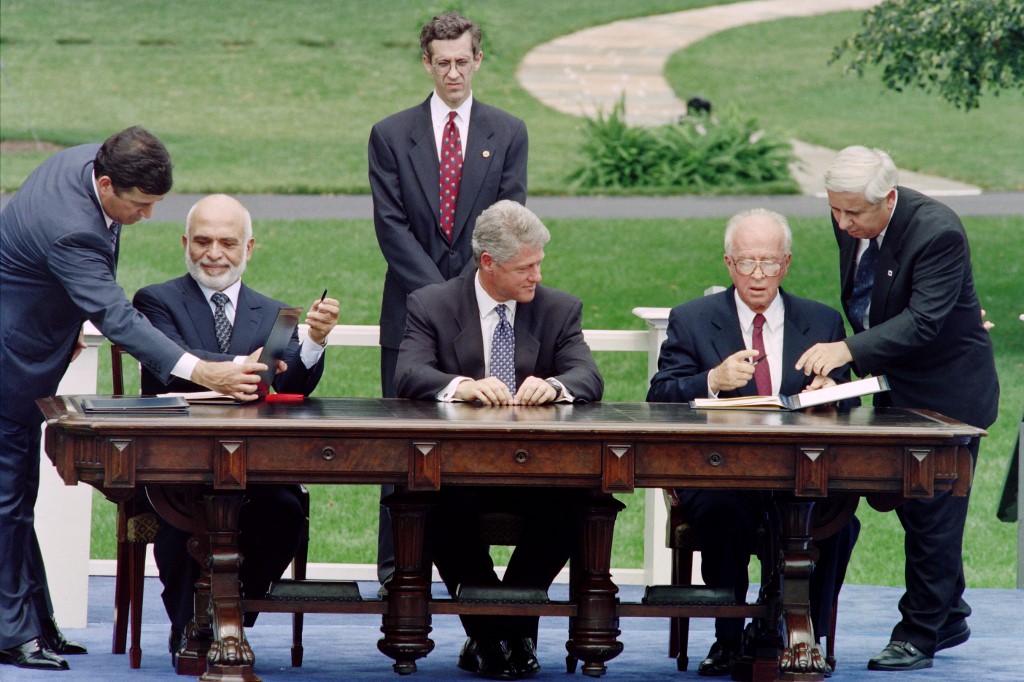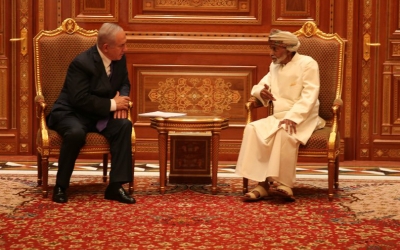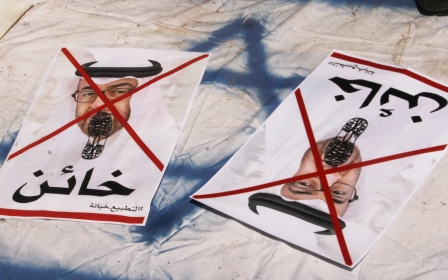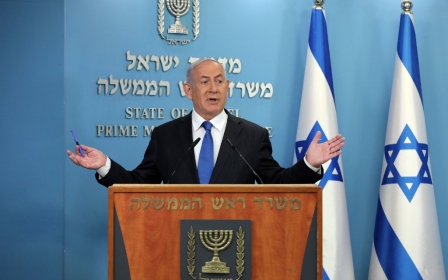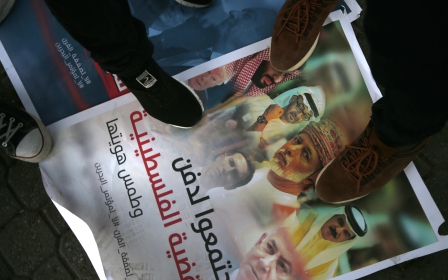How the Israel-UAE deal could leave Jordan out in the cold
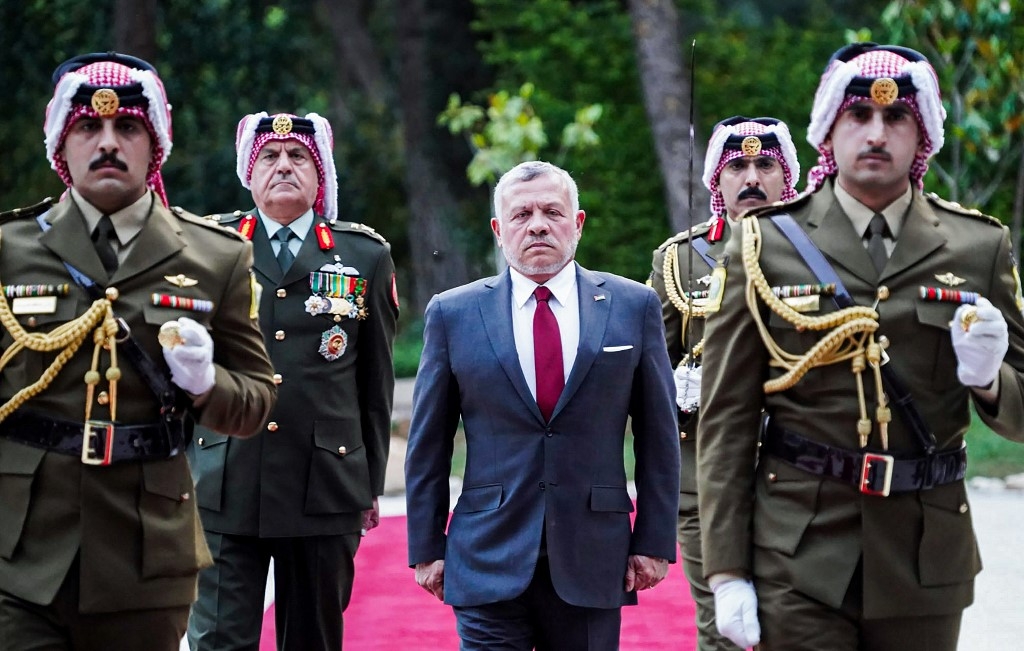
With the signing of the Abraham Accord, UAE Foreign Minister Anwar Gargash praised the formalisation of Israeli ties as a “bold initiative of Sheikh Mohammed bin Zayed” that has frozen West Bank annexation to allow “more time for peace opportunities through the two-state solution”. He called it “a realistic approach”.
Reaction to this initiative has been mixed, especially within the Arab world. Palestinian politician Hanan Ashrawi denounced the deal, telling bin Zayed: “May you never experience the agony of having your country stolen; may you never feel the pain of living in captivity under occupation; may you never witness the demolition of your home or murder of your loved ones. May you never be sold out by your ‘friends.’”
Jordan also criticised the deal, despite having signed a 1994 peace treaty with Israel, with Foreign Minister Ayman al-Safadi warning: “If Israel sees the agreement as an incentive for the end of the occupation and the return of the Palestinian people’s right to freedom and to establish their independent state on the 1967 borders with Eastern Jerusalem as its capital, the region will move towards a just peace. However, if Israel does not do this, the conflict will deepen and threaten the whole region.”
Regime survival
More recently, a controversial tweet from Jordan’s Prince Ali bin Hussein featured the word “traitor” across photographs of bin Zayed. Although it was later taken down, the tweet received more than 900 retweets, with comments ranging from praise of bin Hussein’s “honourable stance” to reminding him of “the 1994 Jordanian-Israeli peace treaty in Wadi Araba, your Highness”.
New MEE newsletter: Jerusalem Dispatch
Sign up to get the latest insights and analysis on Israel-Palestine, alongside Turkey Unpacked and other MEE newsletters
The mixed reception is a reminder that Jordan’s relationship with Israel is intertwined with its majority Palestinian population, expelled from occupied land in waves from 1948-67. This population is significant and effects how the Hashemite dynasty constructs its legitimacy and regime survival, which might be at the core of Jordan’s anger towards the UAE’s new deal.
If the so-called Abraham Accord eclipses the 1994 Washington Declaration, what relevance would Jordan still have for the US?
Under the 1994 peace treaty, Jordan was forced to formally relinquish claims to the West Bank and East Jerusalem. This was problematic, as Jordan’s Hashemites have drawn on religious lineage for legitimacy, including custodianship of Jerusalem’s Al-Aqsa Mosque.
But in exchange for peace with Israel, Jordan grew closer to a major US ally. This had two advantages: Jordan could push Israel for more US aid and act as a covert mediator between Israel and proximate states.
The former was an urgent need throughout the 1990s. “Jordan’s tilt toward Iraq in the 1990 Kuwait crisis had poisoned American-Jordanian relations,” noted Bruce Riedel, a senior fellow at the Brookings Center for Middle East Policy. “Aid had been stopped, military support and logistics cut off, and the Jordanians’ only port at Aqaba was under quarantine to check for traffic transiting to Iraq via Jordan.”
In 1994, King Hussein “was ready to go for a peace treaty [in exchange for] Israeli help with Washington to restore relations, including the resumption of military aid... as well as delivery of a squadron of F-16 jet fighters for the Royal Jordanian Air Force.”
Mediation channels
Jordan’s treaty with Israel allowed Amman to attempt to counter its unpopularity with attempts to hold peace summits that could bolster its status as an arbiter. This was apparent in 2013, when King Abdullah II announced Amman’s willingness to act as a facilitator for peace between Israelis and Palestinians.
“The window of opportunity is still open to re-galvanise” peace efforts, he insisted during a joint press conference with US president Barack Obama.
There is no doubt that the task of balancing a Palestinian populace, religious legitimacy through landmarks in Jerusalem, and a peace treaty with Israel gave Amman the credentials to push this initiative. It would also ensure that Jordan could profit from the ability to host Israeli political figures and Arab leaders who wished to communicate discreetly.
For a resource-dry monarchy, the ability to provide such channels has allowed it to be regarded as an essential and stable actor in the region. This notion is especially true when considering that Jordan was only the second Arab country after Egypt to sign a peace treaty with Israel.
The Egypt-Israel treaty of 1979 cost then-Egyptian president Anwar Sadat his life; he was assassinated in 1981. Jordan’s King Hussein did not seem to face such repercussions, leading some analysts to describe him as an adroit ruler in an unstable region. He passed the reins to King Abdullah in 1999.
Deepening Gulf-Israel ties
Yet, recent events in the Gulf are challenging Jordan’s status as Israel’s strongest facilitator in the Arab world. Under right-wing Prime Minister Benjamin Netanyahu, Israel’s Gulf relations have started to thaw.
In October 2018, Netanyahu was welcomed by Oman’s Sultan Qaboos. Oman’s communications minister said the visit was symbolic of “the good relations that are developing between the Israeli government and the Sunni countries that oppose the Iranian terror, which also threatens them”.
The focus on Iran as a common enemy seems to have encouraged a deepening of Gulf-Israel ties. Indeed, as early as 2017, Saudi Crown Prince Mohammed bin Salman was reportedly visiting Israel for secret talks on regional peace. This was followed in October 2018 by a $250m deal for Israeli spy equipment and “strategic military exchanges”.
Saudi Arabia’s smaller ally, Bahrain, has maintained covert contacts with Israel since 1994 (ironically, the year of the Israel-Jordan peace treaty). Like Saudi Arabia, Bahrain regards Iran as a threat, with Iran periodically making territorial claims to Bahrain.
“Bahrain’s outreach to Israel certainly underscores a continuing, and probably increasing, interest in exploring the prospects for better relations, and even potentially a new strategic relationship, between Israel and the Gulf Arab countries,” noted Hussein Ibish, a senior resident scholar at the Arab Gulf States Institute in Washington.
Future peace talks
As the UAE leads a new opening with Israel, there is no doubt the US will be pleased. For a cash-strapped kingdom such as Jordan, 2020 is reversing the political benefits of 1994.
If Abu Dhabi is now closer to Israel and Washington and were able to freeze settlements, would this mean that future peace talks would be headed away from Amman and towards the UAE? Would a reduced role for Jordan mean less US aid? If the so-called Abraham Accord eclipses the 1994 Washington Declaration, what relevance would Jordan still have for the US?
If Jordan still wants Washington's attention, it must also please the UAE
The US would still consider Jordan’s geostrategic value, but a reduced importance as a conduit for Arab access to Israel may mean reduced aid, reduced living standards and greater socioeconomic difficulties amid a backdrop of increasing unrest. Perhaps this is why Jordanian artist Emad Hajjaj was arrested for his cartoon critical of the new relations.
In addition to shifting geopolitics, the status of Al-Aqsa mosque as a Jordanian religious buttress is now under threat. From Jerusalem, the response to a change in Al-Aqsa's religious status has been swift and firm. Jerusalem's Grand Mufti has prohibited Muslims from the UAE from visiting and praying at the Al-Aqsa Mosque, insisting that any visitors to the mosque must pass through Jordan or the Palestinian territories - not Ben Gurion Airport.
But can such a fatwa be pragmatically enforced, and what about Jordan's response? The fatwa represents a rejection of the Israeli occupation, but Al-Aqsa also represents Jordanian religious legitimacy.
With a Palestinian majority populous, King Abdullah II has responded coldly to UAE-Israel relations but will no doubt be balancing this response with access to Washington and the Emirates.
No matter what balancing act is chosen, one thing is clear: if Jordan still wants Washington’s attention, it must also please the UAE.
The views expressed in this article belong to the author and do not necessarily reflect the editorial policy of Middle East Eye.
This article is available in French on Middle East Eye French edition.
Middle East Eye delivers independent and unrivalled coverage and analysis of the Middle East, North Africa and beyond. To learn more about republishing this content and the associated fees, please fill out this form. More about MEE can be found here.



